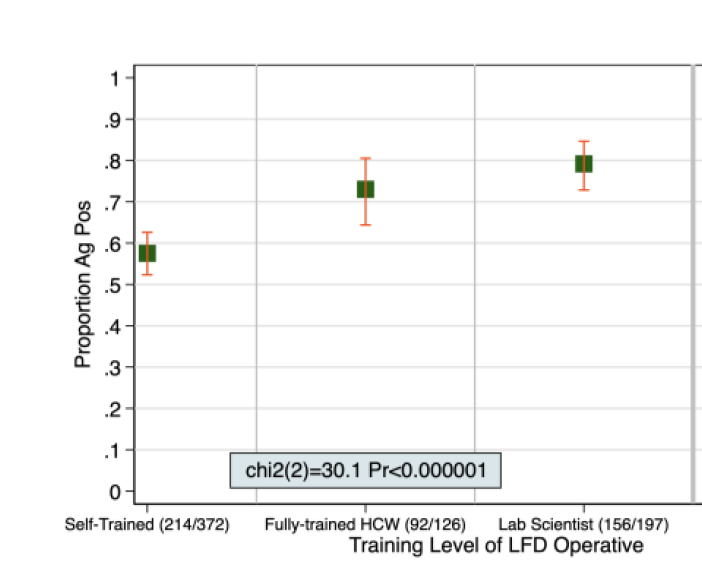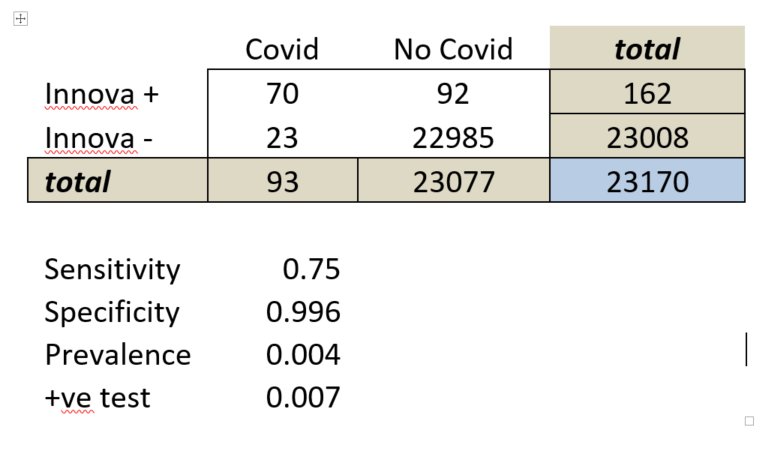
I’ve been horrified that my tweets about Covid tests now automatically generate responses and retweets stating “PCR is a poor test” (regardless of whether I mention PCR at all).
1/13
1/13
To be a good scientist you need to keep an open mind and be open to challenging argument. But the decider are the proper scientific studies that provide evidence. None have convinced me that “PCR is a poor test”.
2/13
2/13
Stating “PCR is a poor test” challenges the evaluations where PCR is the reference standard, as well as case counts, and to some the existence of COVID entirely. If we believed it, the cases that lateral flow tests miss would be classified as being overdiagnosed by PCR.
3/13
3/13
Sure, we know that PCR tests stay positive at low levels in some people for weeks after Covid, but that is accounted for by interpreting test results in the clinical context, being careful about the threshold, and not retesting people who have had Covid for a few months.
4/13
4/13
And sure we know that PCR can miss cases, mainly through the swabbing, and international case definitions include CT results, antibody results and clinical definitions acknowledging this.
5/13
5/13
And right now nobody has proposed anything better.
6/13
6/13
Months ago I wasn’t sure that the false positive rate was as low as claimed. But I have been convinced – mainly from looking at the total positive rates from Australia and other places now with no Covid. The rates are exceptionally low.
7/13
7/13
But to switch from what is the accepted scientific standard to something different we need to do so carefully, and with clear evidence and sound scientific thought. And certainly not on the basis of conspiracy theories or statements from groups with political agendas.
8/13
8/13
There is a scientific way to see whether a test is better than the reference standard. I worked through this for latent TB nearly 20 years ago with Ajit Lalvani & @ProfKatieEwer comparing the new T-cell tests with the existing reference standard of the tuberculin skin test.
9/13
9/13
We had the chance to compare the tests in a school TB outbreak in Leicester. If interested you can read our Lancet paper here:
10/13
Comparison of T-cell-based assay with tuberculin skin test for diagnosis of Mycobacterium tuberculosis infection in… pubmed.ncbi.nlm.nih.gov/12686038/8/12
10/13
Comparison of T-cell-based assay with tuberculin skin test for diagnosis of Mycobacterium tuberculosis infection in… pubmed.ncbi.nlm.nih.gov/12686038/8/12
@PaulGlasziou and Les Irwig helped to draw out the generalisable lessons and create a framework which others can follow, which we summarised in Annals here:
11/13
When should a new test become the current reference standard? pubmed.ncbi.nlm.nih.gov/19047029/
11/13
When should a new test become the current reference standard? pubmed.ncbi.nlm.nih.gov/19047029/
Others have used it since, for example looking at High Sensitivity Troponins for Acute MI.
12/13
bmj.com/content/350/bm…
12/13
bmj.com/content/350/bm…
I have an open mind. When you have studies like these which can show that other tests are better than PCR please let me know. But meanwhile please do not respond or retweet my tweets saying "PCR is a poor test".
13/13
13/13
@threadreaderapp unroll
• • •
Missing some Tweet in this thread? You can try to
force a refresh







